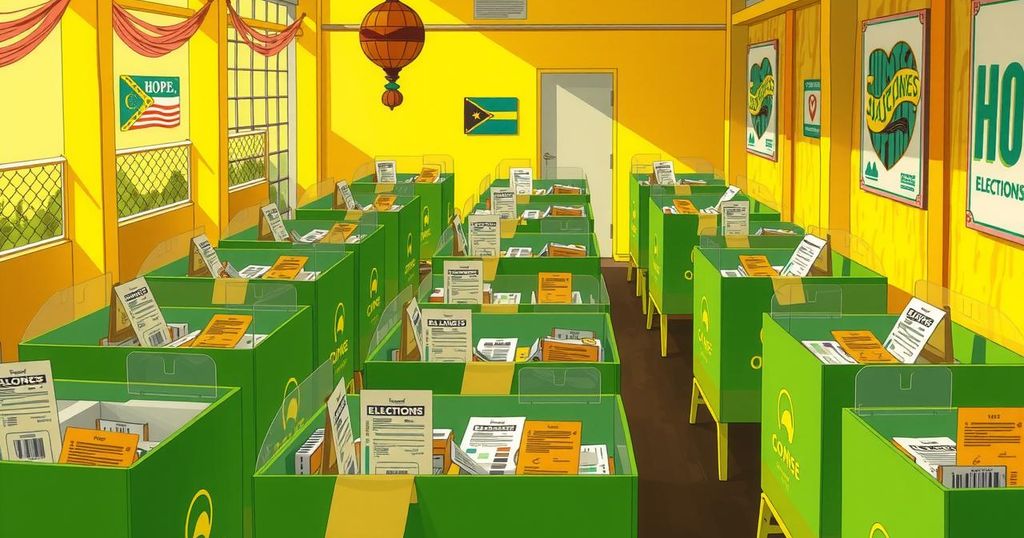Gabon’s Presidential Election Post-Coup: Voter Sentiments and Military Authority

Gabon held a presidential election on Saturday, following a 2023 military coup that ended a 50-year political dynasty. Interim President Gen. Brice Clotaire Oligui Nguema is expected to win, facing challenging issues such as poverty and foreign influence. Voter turnout was notable, reflecting diverse opinions on the military leadership and political future of the country.
On Saturday, voters in Gabon participated in a presidential election aimed at legitimizing the military rulers’ control after a coup in 2023. This election marks a significant shift in Gabonese politics, ending a 50-year political dynasty. Analysts anticipate overwhelming support for the interim president, Gen. Brice Clotaire Oligui Nguema, who hopes to secure a seven-year term. Nearly 920,000 voters, including over 28,000 from abroad, were registered to vote across more than 3,000 polling stations, amid economic concerns where a third of the population lives in poverty despite substantial oil wealth.
General Oligui Nguema, who led the coup against President Ali Bongo Ondimba nearly two years ago, aimed to consolidate power through these elections. Following the coup, Bongo and his family faced legal challenges, with charges against his wife and son for corruption, although Bongo himself was not charged. Oligui Nguema has consistently promised to restore civilian rule through transparent elections, promoting a unifying campaign slogan, “We Build Together.”
Eight presidential candidates are contesting this election, with Oligui Nguema’s primary challenger being Alain Claude Bilie-By-Nze, Bongo’s former prime minister. Bilie-By-Nze has committed to revamping public finances and reducing ties with France. In an interview, he expressed skepticism regarding the election’s integrity, noting obstacles to fair voting. Gabon’s ongoing alliance with France remains contentious, especially as there are still over 300 French troops stationed in the country.
During the election day, a calm atmosphere prevailed as voters turned out in Libreville. Many expressed reservations about the military government; for instance, Jonas Obiang criticized Oligui Nguema’s leadership, associating it with the previous regime’s faults. Conversely, some citizens, like Jean Bie, acknowledged benefits from the military leadership, citing completed projects that had been stalled under previous administrations, indicating a split in public opinion regarding the coup’s implications.
The Gabonese presidential election following the military coup represents a critical juncture in the nation’s political landscape. With a significant voter turnout and divisive opinions on leadership, this election serves as a barometer for the populace’s sentiments on governance, foreign relations, and economic development. The outcome will likely shape Gabon’s future and the legitimacy of military rule in the region.
Original Source: www.news4jax.com







